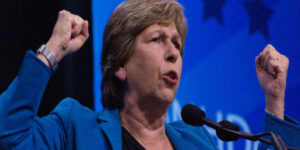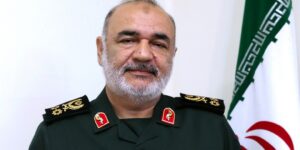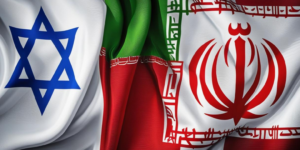Christians Face Extinction in Middle East, Warns UK Minister
A UK Foreign Office Minister has warned that Christians in some parts of the world face extinction because of violence against them.
Ahead of a speech on Friday at Georgetown University in Washington, D.C., Baroness Sayeeda Warsi told the BBC that this “persecution” has become a global crisis.
“I’m concerned, as are members of the public from the large amount of correspondence that we receive, that the birthplace of Christianity—the parts of the world where Christianity first spread—is now seeing large sections of the Christian community leaving and those that are remaining are feeling persecuted,” she said.
“There are huge advantages to having pluralistic societies—everything from the economy to the way in which people develop educationally—and therefore we all have an interest in making sure that Christian communities do continue to feel like they belong and are not persecuted in the places where this religion was born.”
Baroness Warsi said the situation was bleak for many religious minorities, but particularly for Christians.
“It is [particularly bad for Christians],” she said. “One in ten Christians live in a minority situation and large numbers of those who live in a minority situation around the world are persecuted. And I think tragically what’s happening is that they are being seen as newcomers, being portrayed as ‘another’ within that society, even though they have existed there for many, many centuries.
“What we are seeing sadly is a sense of collective punishment, which is meted out by local groups—sometimes states, sometimes extremists. [Christians are] seen as legitimate targets for what they perceive as actions of their core religions, and this concept of collective punishment, about them being seen as agents of maybe the West or other places of the world or agents of regimes is wrong, and therefore we need to speak out and raise this with the countries where this is happening.”
Born in England to Pakistani immigrants, Warsi was elevated to the House of Lords in 2007 at the age of 36, making her the youngest peer in parliament at the time. In 2010, Prime Minister David Cameron appointed her as minister without portfolio, and in 2012 she was named minister of faith and communities.
She is the highest-ranking Muslim in Britain’s government.
In her Georgetown speech, Warsi said leaders of all faiths and governments in the West can fight the “new sectarianism that is breaking out across continents” in four ways:
-
Emphasising the moments in history when people of one faith came to the aid of the people of a different faith. As Muslims sheltered Jews during the Holocaust, and Jews helped Bosnian Muslims rebuild their lives after the Balkans War, Warsi said “history is one of our most powerful tools in promoting religious freedom. It proves that there is nothing inevitable about sectarian conflict around the world. And I reject that there is a Muslim world and a Christian world.”
-
Insisting that “the presence of other faiths doesn’t come at the expense of your own”. “Sending my own daughter to a Christian convent school didn’t make her less of a Muslim,” she said. “For me, rejection of another faith just reveals a weakness in your own.”
-
Promoting the link between religious freedom and economic health. “Persecution is bad for business,” she said. Research “has proven the link between religious freedom and a society’s ability to flourish.”
-
Encouraging leaders of the major faiths to defend the others. “Our response to this global crisis must not itself be sectarian,” Warsi said. “It must not be a case of Christians defending Christians, Muslims defending Muslims, or indeed faith groups defending faith groups.”
Earlier on Friday, during a question-and-answer session at the Council on Foreign Relations, Warsi said the rise of sectarian violence has driven a wedge between the major religions, creating space for extremist elements.
“The challenge appears to be that certain bits of the world want to talk about Islamophobia in the West and other bits of the world want to talk about freedom of expression and persecution of Christians, so it is very polarising, and it’s about trying to find that middle way,” she told the audience at the Council on Foreign Relations event.
Part of the response to sectarian violence, she said, requires religious authorities to refute extremists when they point to their religion to justify persecution.
“Take away from the extremists their moral high ground,” she said.”Do not allow them the faith. And anything that allows them to take the faith as their mantle, I think, empowers them. And we’ve got to take that away from them.”
Beyond speaking out, Baroness Warsi urged politicians to keep their word by ensuring that their national constitutions are met and that international human rights laws are followed.
“There is much more that we can do [beyond speaking out],” she said. “There is an international consensus in the form of a human rights council resolution on the treatment of minorities and tolerance towards other faiths, but we need to build political will behind that.
“We have international articles which are the most translated on freedom of religion but they’re not implemented, so it’s not just about having laws, it’s about politicians having the political will to implement these laws.”




























































